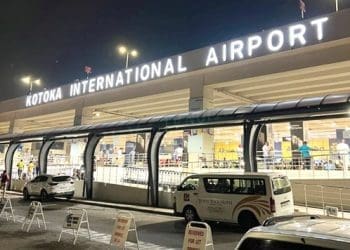The Jospong Group of Companies, in collaboration with international partners, has launched an intensive training programme for district waste managers of Zoomlion Ghana Limited under a new initiative dubbed the “Jospong-Komptech Waste Academy.”
The capacity-building programme began in the Ashanti Region, bringing together waste management personnel for expert instruction in modern solid waste management practices.
The training, which marks the latest phase in a series of nationwide workshops, aims to equip waste managers with the skills and knowledge required to improve Ghana’s waste management systems.
Topics covered include Integrated Solid Waste Management (ISWM), Circular Economy principles, Composting, Landfill Management and Emissions Treatment, and Thermal Waste Recovery through technologies such as Refuse Derived Fuel (RDF).
International support and technical expertise
Project Manager of the Jospong-Komptech Waste Academy, Mr. Jacob Kwaku Ladi, said in his introductory remarks that the project is being funded through an international partnership with Komptech GmbH, the Austrian Development Agency, the Technical University of Vienna, and ICEP, a social impact NGO based in Austria.
“This initiative is designed to build a generation of waste management experts in Ghana capable of meeting the country’s growing environmental and sanitation needs,” Mr. Ladi stated.

He explained that since the launch of the programme in Accra last year, top executives and regional managers within the Jospong Group have undergone expert-level training by professionals from Komptech and the Technical University of Vienna.
To expand the programme’s reach, selected staff members of the group also received practical training in Austria and will serve as master trainers for the district-level sessions now underway.
In addition, he revealed that the National Association of Local Authorities of Ghana (NALAG) will be involved in the project, with some of its members expected to benefit from upcoming training modules.
Experts deliver practical training
Two key trainers—Mr. James Deku and Mr. Isaac Awuah—led technical sessions during the Ashanti Region training. Mr. Deku took participants through ISWM practices, the Circular Economy, and methods for effective landfill management and emissions control.
Mr. Awuah provided guidance on composting techniques and thermal waste recovery, critical areas for reducing environmental pollution and converting waste to energy.
The interactive nature of the training allowed participants to engage deeply with current best practices and receive guidance tailored to their operational environments.
Participants laud training impact
Participants responded positively to the training, praising its practical focus and relevance to real-world challenges.
Mr. Alex Fordjour, an Operations Assistant at the Nwabiagya Municipal Office, described the programme as “insightful,” noting that it significantly enhanced his technical understanding beyond what he had learned during his university studi
“I hold a BSc in Environmental Science from KNUST, but this training brought everything to life. The practical demonstrations and detailed explanations filled in the gaps from my classroom education,” he said.
Mr. Fordjour expressed enthusiasm about implementing what he had learned to improve waste management systems in his district and enhance public health outcomes. “I look forward to applying these strategies to transform waste handling in my community,” he added.
Next steps: National rollout
The training in the Ashanti Region represents just the beginning of a larger national rollout.
The Waste Academy plans to reach all district-level waste managers across Ghana, creating a network of technically equipped professionals capable of modernising the country’s waste management sector.
With Ghana continuing to grapple with mounting waste generation and its implications for public health and the environment, the Jospong-Komptech Waste Academy is emerging as a timely intervention.
The project seeks to bridge the knowledge gap in solid waste handling and promote sustainable, circular solutions that benefit communities and the environment.
Through this initiative, the Jospong Group is reinforcing its commitment to building local capacity, enhancing sanitation services, and advancing Ghana’s broader environmental goals.













